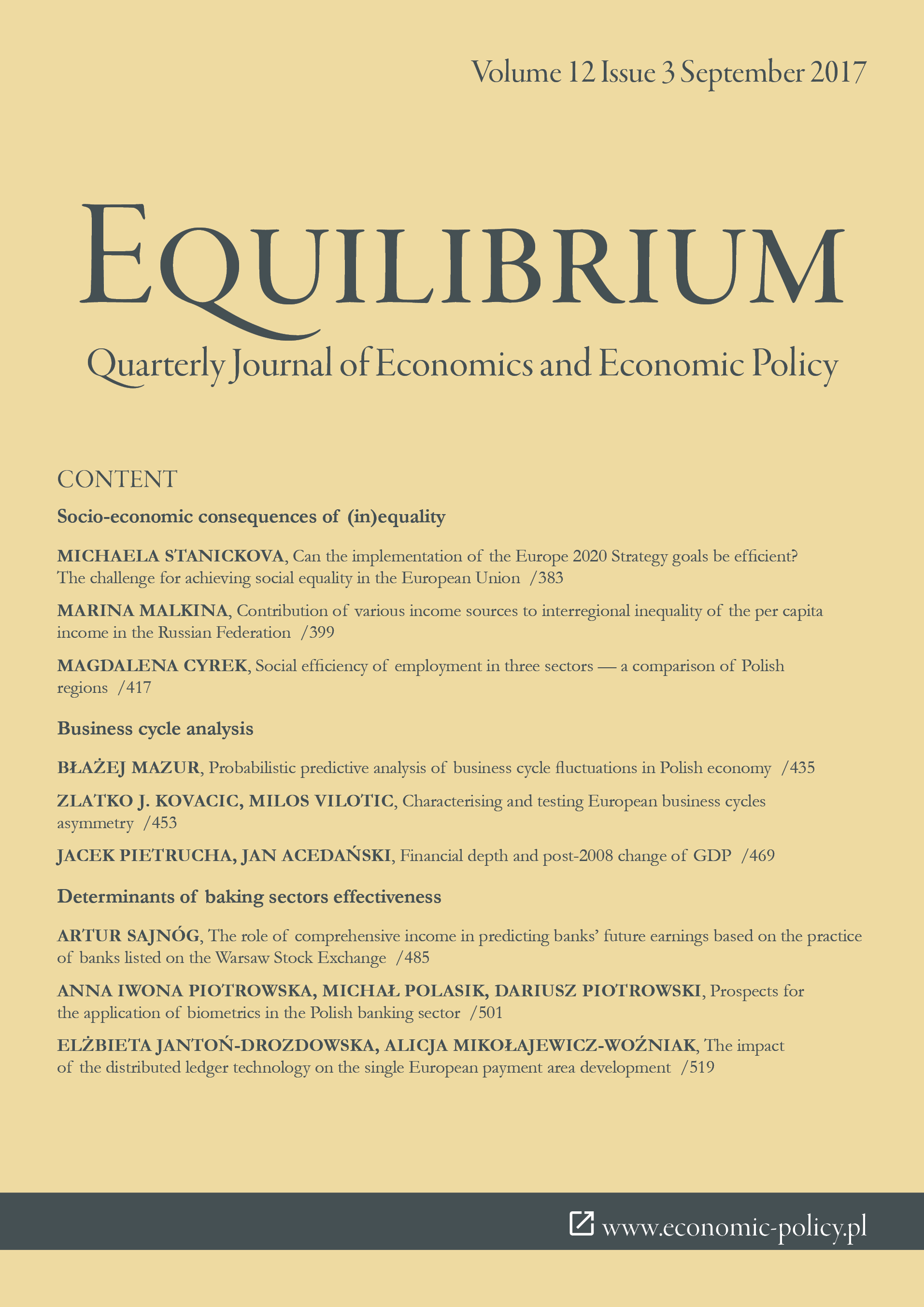The role of comprehensive income in predicting banks’ future earnings based on the practice of banks listed on the Warsaw Stock Exchange
The role of comprehensive income in predicting banks’ future earnings based on the practice of banks listed on the Warsaw Stock Exchange
Author(s): Artur SajnógSubject(s): Business Economy / Management, Transformation Period (1990 - 2010), Present Times (2010 - today), Financial Markets
Published by: Instytut Badań Gospodarczych
Keywords: comprehensive income; net income; financial reporting; predictive power; banks;
Summary/Abstract: In the economic literature there are many arguments presented by critical supporters and opponents of measuring and reporting comprehensive income. There is a justified need to examine the relevance and usefulness of comprehensive income, especially the predictive power of comprehensive in-come for forecasting future earnings. It may be assumed that the comprehensive income has a better predictive power for future bank performance than net income, because this measure includes many elements, which were previously presented in the statement of changes in equity. Purpose of the article: The major subject of the theoretical-empirical study presented in this paper is the evaluation of the usefulness of comprehensive income for predicting banks’ future earnings. Realization of the fundamental objective of this paper was centered around the main research hypothesis, stating that in economic practice of banks listed on the Warsaw Stock Exchange it can be assumed that there is a positive predictive power of financial result in forecasting financial standing of these entities. Methods: The research comprised bank joint-stock companies listed on the Warsaw Stock Exchange (qualified on 15.09.2016). Empirical data for the study was obtained from the quarterly financial statements (the period from 2009 to 2015) from EMIS. The problem was realized in two analytical dimensions: absolute dimension financial results, and a relative dimension (return ratios). The research method was the regression analysis conducted by means of Spearman’s rank correlation coefficient and by two regression models in two versions. Findings & Value added: The research showed that the analyzed bank companies were characterized by a diversity usefulness of comprehensive income for predicting banks’ future earnings. Nevertheless, it must be stressed that the calculated Spearman’s rank correlation coefficients confirm in most instances a positive character of dependence between the comprehensive income and future return ratios. The results of the estimation of econometric models shows the positive association of comprehensive income with future profitability of banks.
Journal: Equilibrium. Quarterly Journal of Economics and Economic Policy
- Issue Year: 12/2017
- Issue No: 3
- Page Range: 485-500
- Page Count: 16
- Language: English

